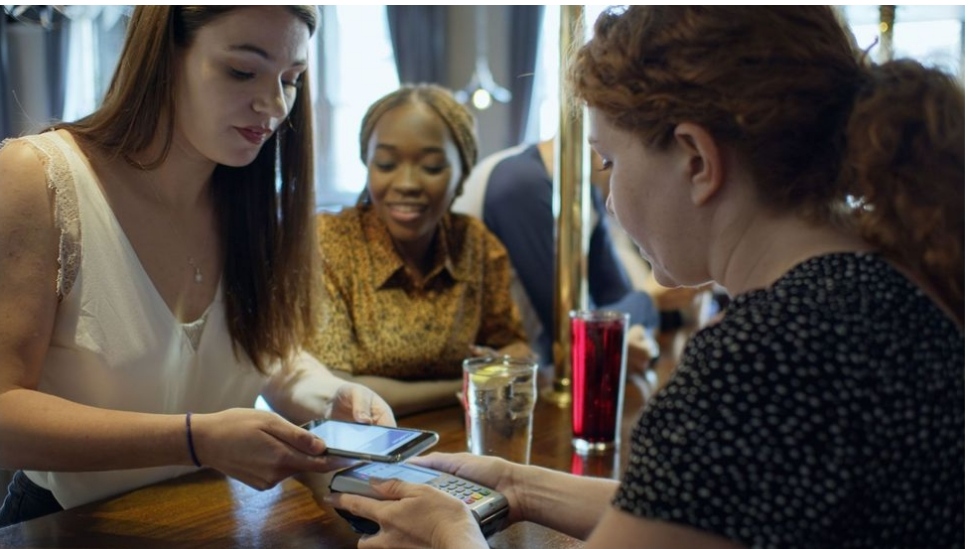Why Gen Zers are growing up sober curious?

Situations that once included alcohol are off the table for some, instead replaced by other activities (Credit: Getty Images)
By Megan Carnegie
A complex combination of outside pressures and information overload is driving young people to snub alcohol, far more than generations before them.
As a teenager, Lola’s drinking went in cycles. There would be a night of heavy drinking, then then a regretful day spent piecing the previous evening together. Next, a period of sobriety, before the next big night out. But when the pandemic hit, Lola moved back in with her parents in London, and her drinking came to an abrupt halt. Lockdown, she says, presented her with an opportunity to step back from ingrained habits and address her anxiety issues.
Now, the 22-year-old student is enjoying a different relationship with alcohol. She recently tried clubbing sober, and although she still drinks, it’s much less frequent. “I’m not anti-drinking – I just don’t like getting drunk or feeling ill the next morning,” says Lola. “I like going home safely and remembering the people I met, so sober nights work well for me.”
Lola isn’t an anomaly among her friends – she says all have been drinking less since the pandemic, and she feels no judgement from her peers when not drinking. “Friends who haven’t limited their drinking as much as me think it’s cool when people go out sober,” she explains. “It’s a you-do-you mentality where people are respectful of your choices, whether you’re protecting your mental health, or just don’t fancy it.”
Experimenting with alcohol – and drinking to excess – has long been seen as a rite of passage into adulthood, at least in Western cultures. From an early age, often before the legal age, alcohol is embraced as a social lubricant, a way to have fun, make friends and escape day-to-day realities. Few professional or social events are without some form of alcohol.
But Gen Zers are taking it slow as they enter adulthood, either by not drinking at all, or drinking less often and in less quantity than older generations. The UK’s largest recent study of drinking behaviours showed in 2019, 16-to-25-year-olds were the most likely to be teetotal, with 26% not drinking, compared to the least likely generation (55-to-74-year-olds), 15% of whom didn’t drink. Among US adults, Gallup showed those aged 35 to 54 are most likely to drink alcohol (70%), compared to Gen Zers (60%) and Boomers (52%), while a study from 2020 found that the portion of college-age Americans who are teetotal has risen from 20% to 28% in a decade. Of those who do drink, the largest portion of young Europeans (defined as over the legal drinking age up to 39) drinks once a month (27%), while in the US, the biggest group drink once a week (25%).
The decline in youth drinking, according to experts, is remarkable and widespread in most high–income European countries, as well as the US, Australia and New Zealand. During lockdown, Gen Z Australians were most likely to have decreased their alcohol consumption, with 44% reporting they were drinking less – more than double the rate for any other generation. Rates of binge drinking among New Zealand’s young people have also dropped by more than half between 2001 and 2012, and have continued to drop since.
Pinning the downturn to one particular driver, however, is impossible. Gen Zers are growing up in a unique social landscape where, weighed down by financial and societal worries, they’re more risk averse. They have a nuanced understanding of how drinking impacts their health and that of people around them. Consequently, a youth culture that has de-normalised drinking is flourishing – and the change is being felt. As Gen Z reshapes the idea of a ‘good night out’ and often socialises without drinking, the trade and hospitality industries are moving fast to adapt.
Clued in and risk averse
Part of the reason for the decline in drinking is that Gen Z appear to be more cautious than older generations, both in terms of their health and how their peers perceive them.
“[The decrease in alcohol consumption is] certainly not happening because of alcohol policy, because all risky practices are going down – drug use, unprotected sex, risky behaviours [like smoking, crime and driving hazardously] – young people are more risk averse in general,” says Amy Pennay, a senior research fellow at the Centre for Alcohol Policy Research at La Trobe University, Melbourne.
A factor in this shift is that young people today know far more about health risks associated with these kinds of behaviours. With more available research and open discussion, their knowledge is increasingly multi-faceted, she says. It’s easier than ever to learn more about the perils of drinking, whether that’s by doing a quick Google search, tapping into TikTok communities like #SoberTok or talking with friends and family members.
Google research in 2019 by showed 41% of Gen Zers associate alcohol with “vulnerability”, “anxiety” and even “abuse”
For example, concern about losing control and developing a drinking addiction is markedly heightened among young people. Google research in 2019 by showed 41% of Gen Zers associate alcohol with “vulnerability”, “anxiety” and even “abuse”; while 60% of UK Gen Zers associate drinking with a loss of control – almost double those who do not. The spate of drink-spiking in bars and clubs may also serve a deterrent, especially for women.
Plus, with a young person’s every move being potentially played out in real time on social media for friends, family and even employers, letting loose comes loaded with risk. According to the same Google research, 49% of Gen Z say their online image is always at the back of their mind when they go out socialising and drinking. It’s no wonder then, that 76% feel it’s important to be in control of all aspects of their life at all times.
John Holmes, professor of alcohol policy at the University of Sheffield, adds there’s also been a stark attitudinal shift; not only do Gen Zers have a deeper awareness of health risks, but they also actively shun the notion of drunkenness. “In the mid to late 2000s, getting drunk and binge drinking was a way friendships were formed and solidified – even experiencing the negative effects together was a key part of making and sustaining friends in adolescence and early adulthood,” he says. “But Gen Zers are more likely to see drunkenness as unpleasant, uncool or uninteresting.”
Lola, for example, feels unsettled when she sees anyone who is very drunk. “I don’t know many people that drink that much who are OK,” she says. “I’m pleased that the narrative is shifting and there’s an acknowledgement that heavy drinking is bad for you.”
Unwinding looks different, amid financial pressures
However, it’s not just risk aversion that’s curtailing alcohol consumption – the way young people approach relaxation has changed, too. Experts say much of this is linked to the challenges that they perceive await them in future as well as the way they want to lead their lives. An always-on approach to technology and content consumption means that unwinding often takes the form of withdrawal, or catching a break from the extroversion of social media.
When researching in the early 2000s, amid an era of heavy alcohol and party drug use, Pennay remembers young people discussing hedonistic abandon and their wish to switch off by “getting obliterated and having a good time”. It’s the opposite now – Pennay finds that Gen Zers tend to opt to recharge their batteries during time off from work, or work on furthering their study or personal development.

Financial challenges for Gen Z have meant that alcohol is prohibitively expensive for some people (Credit: Getty Images)
Yet while getting ahead professionally is front of mind for young people, simply getting by is hard enough. This year, when Deloitte asked almost 15,000 Gen Zers around the world about their most pressing concern, they cited the cost of living as their top worry (29%), ranking higher than climate change, unemployment, mental health and sexual harrassment. Almost half (46%) say they live paycheck to paycheck, and worry about covering their expenses, so to make ends meet, 43% have taken on either a part- or full-time job in addition to their primary job – 10% higher than millennials.
“The way Gen Zers budget and save is so different from previous generations, because they can’t just bust into the housing market,” says Pennay. “Therefore, some see alcohol as an overpriced commodity that obfuscates the bigger picture.”
Safeguarding her mental health is the primary driver for Lola’s sober curiosity, but the cost of alcohol also plays a prominent role. When living in Paris earlier this year, she drank more because it was much cheaper. “I could spend €20 and be consistently drinking, but in London, that would get me nowhere,” she explains. “Even if I did want to get drunk, I couldn’t afford it.”
The ripple effect of ‘quality experiences’
Whatever the driving factors, with more young people steering away from alcohol, an environment that facilitates and even embraces sobriety is springing up. Since Jason, 24, from New York, went sober three years ago, he’s made friends with lots of other young people who don’t drink. “Drinking is a big part of New York culture, and I was expecting friction, but people my age and younger are very helpful and kind about my choice.”
Holmes sees Gen Zers’ moderate drinking behaviours and attitudes as a natural progression. “Alcohol consumption rose across the second half of the 20th Century, but the hedonism and binge drinking of the late 90s and early 2000s was an incongruous spike,” he says. “Consumption trends come in long waves that rise and fall – drinking was bound to come down at some point, and it was likely that younger generations would make that change.”
Consumption trends come in long waves that rise and fall – drinking was bound to come down at some point, and it was likely that younger generations would make that change – John Holmes
Of course, Gen Z missed out on a series of rites of passage into adulthood during the pandemic, and it’s still not clear how the two-year shutdown will change young people’s approach to socialising in future. Overall though, Pennay doesn’t forecast a big post-pandemic swing back to boozing – if it’s normal now not to drink at age 17, it’s will be even more normal at 18, 19 and so forth.
With Gen Z now accounting for one-third of the global population, the alcohol industry is adapting to young people’s new preferences. Emma Hutchison, founder of the global drinks agency Sweet & Chilli and the owner of three bars in London, has noted a shift towards quality over quantity among young people. Instead of constantly sipping sugary alcopops, now they might order a cocktail – or mocktail – to last the night. Indeed, a late 2021 study found that over 21-year-olds in the US prefer hard beverages like spirits or hard seltzers, champagne, and drinks with little or no alcohol, over wine and beer.
“They’re looking for quality experiences that enrich their lives,” says Hutchison. “Gen Z wants brands that align with their own mindsets and they’re making more conscious decisions about how they consume.”
Equally, the rapid expansion of the non-alcoholic drink sector and the innovation within it has sent a message to sober and sober-curious consumers that bars have something for everyone.
“In the past, you might feel excluded within the food and drink space if you didn’t want to drink,” says Hutchison. “But it’s so exciting to see non-alcoholic drinks being given as much airtime, consideration and quality of ingredients as is in the alcoholic versions.” A more diverse range of options is paying off too – unlike alcohol, the no and low-alcohol category has grown consistently and the leading drinks market analysis firm IWSR predicts that, by 2024, the total volume consumption will grow by over 31% across Australia, Brazil, Canada, France, Germany, Japan, South Africa, Spain, the UK and the US.
Post-pandemic, bars and restaurants have also been elevating their experiential offering – for example, adding in ping-pong and shuffleboard tables – to appeal to all generations, but especially for Gen Zers. “There’s a huge desire to socialise in spaces which have been and still are associated with ‘going out drinking’,” says Hutchison. “But with the industry championing alternative options, it’s going to become more of a safe space for Gen Z to socialise, connect and indulge in rich food and drinking experiences.”
Like most other 24-year-olds, Jason’s social life is centred on coffee shops, restaurants, sports games and nights in with friends. He likes trying random activities that don’t require drinking – the most recent being yoga with goats. “I go to sober parties and parties where people are drinking. I just like being active and hanging out,” he says. “It’s been eye-opening for me to realise you can be young and sober and have very full friendships.”
BBC Travel



